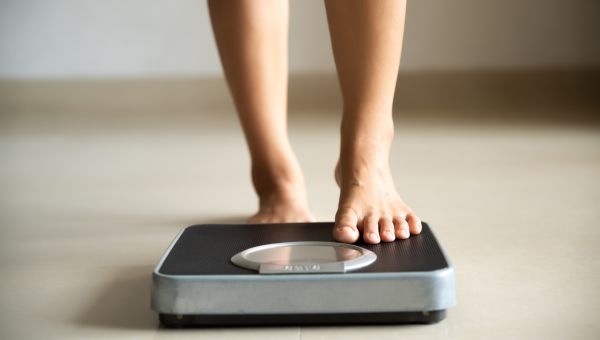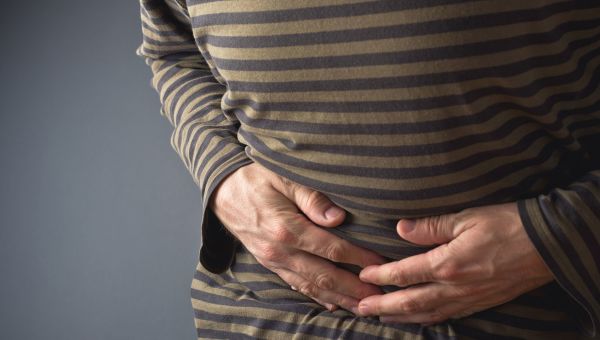Dispelling 6 weight-loss surgery myths
We're separating fact from fable when it comes to bariatric surgery.
Updated on October 7, 2025

If you're looking to lose a lot of weight and are considering weight-loss surgery, you'll want to make sure you've got all the facts before taking that serious next step. Matthew Brengman, MD, a bariatric surgeon at Parham Doctors' Hospital, says it’s smart to start out by educating yourself on weight loss surgery. And while the Internet is a great place to start your search, it doesn't always have the most reliable advice.
Which is why we spoke with Dr. Brengman to uncover the truth when it comes to common myths about weight loss surgery. Click through for his advice on what you need to know.

Myth #1: Weight loss surgery is dangerous
There's always a risk of complications with any surgery, but with weight loss surgery, numbers are surprisingly low. According to Dr. Brengman, the risk of leakage after weight-loss surgery is less than half of a percent. And as surgery has gotten better, mortality rates have fallen too. "From 2006 to now, we've seen the risk of dying from a weight loss operation go from a couple of a percentage points to 0.1% … That's lower than having your gallbladder out or your hip replaced," Brengman adds.

Myth #2: The recovery process in the hospital is long
False—with most weight loss surgeries, you're out of the hospital the next day. Dr. Brengman breaks it down: "Let's say you come in on Monday morning for a gastric sleeve surgery. Four hours after your operation you would be walking, you'd be drinking liquids that day, and you'd go home the next day at noontime." And even time spent in surgery is minimal, typically an hour for a gastric bypass and only 45 minutes for a gastric sleeve.

Myth #3: Pain from surgery will be unbearable
Think you'll be walking out hunched over in pain after your big surgery? Dr. Brengman says that's not really something you should be worried about. "We use a video laparoscope so the incisions are tiny. Pain is really not a big component of the weight loss surgery." Your doctor will educate you about your surgery, especially when it comes to pain management. However, pain within the weeks or months after surgery can still occur, and the list of possible causes is long—from eating too fast to developing gallstones or even an ulcer. Tell your doctor about any pain so they can help find the cause.

Myth #4: I won't have to change my lifestyle much
Undergoing bariatric surgery doesn't mean the weight's off and you're home free. As you probably know, huge lifestyle changes occur in both your eating and exercise habits. But what you probably didn't know, is that your hydration habits change drastically too. What exactly does that mean? It means you're expected to drink a LOT of fluids and keep track of it. To stay hydrated, patients are typically advised to drink an ounce of liquid every 15 minutes or so, explains Brengman. "Our most frequent cause of unscheduled visits in the office is dehydration, because it's a huge change. Patients have to really work at drinking, especially after those early weeks after the operation," he says.

Myth #5: Bariatric surgery is mostly about your appearance
Generally when people get bariatric surgery, it's because their weight has contributed to the worsening of other health issues, i.e., dangerously high blood pressure or sleep apnea problems. But good news: Weight loss surgery, and the calorie restriction that results, can positively impact your other health problems. Of those, diabetes is usually the first to improve after surgery. With time, sleep apnea, high blood pressure, cholesterol and joint pain get better as well. Another fun fact: Some research shows that the major weight loss from bariatric surgery may cut cancer risk as well. "The research implies that there is a strong obesity effect in certain cancers," says Dr. Brengman.

Myth #6: After surgery, I'll be hungry all the time.
Bariatric surgery forces you to eat smaller meals, so you’ll have to eat constantly to feel satisfied, right? Actually, no. Bariatric surgery alters your hormones in a way that actually leads to appetite suppression. In fact, after surgery (and depending on the type of weight loss surgery you receive), patients may not feel really hungry for up to a year. But this "honeymoon" period doesn't last forever. This is why it's so important to follow the advice that your surgeon and the hospital give you to stay on track in the long run.
More from Dr. Brengman:
How is morbid obesity treated surgically?
Who is a good candidate for bariatric surgery?
More On


video

article

slideshow


video


video
